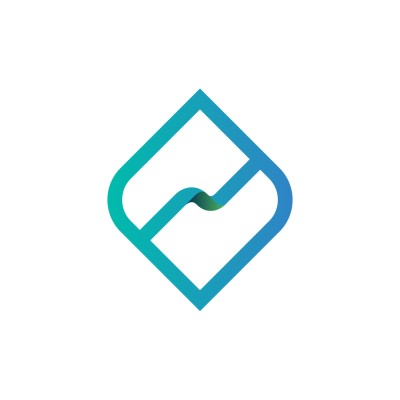Thyme Care Secures $97M: Reshaping Value-Based Cancer Care
September 29, 2025, 3:36 pm

Location: United States, Texas
Employees: 1001-5000
Founded date: 1986

Location: United States, Texas, Houston
Employees: 10001+
Founded date: 1907
Total raised: $5M

Location: United States, California, San Francisco
Employees: 11-50
Founded date: 2011
Thyme Care secured $97M in Series D funding. This boosts its value-based oncology mission. Total capital raised now stands at $275M. The company manages $5B in cancer spend. It serves 8 million people nationwide. Thyme Care leverages AI and integrated care teams. The model reduces costs. It enhances patient experience. It streamlines provider workflows. New strategic investors include Morgan Health, Humana, Texas Oncology, and Memorial Hermann Health System. This investment validates Thyme Care's profitable, scalable model. It revolutionizes cancer care delivery.
Thyme Care leads a transformation in oncology. The company just closed a $97 million Series D funding round. This significant investment bolsters its value-based cancer care initiatives. It brings Thyme Care’s total capital raised to an impressive $275 million. The firm has achieved profitability. It now oversees more than $5 billion in oncology spend. Its reach extends to 8 million people across the nation. This growth marks a pivotal moment for healthcare innovation.
Cancer care presents immense challenges. The system is often fragmented. Patients face delays. Administrative burdens weigh heavily on providers. Thyme Care emerged to address these fundamental flaws. It builds an integrated oncology infrastructure. This design reduces systemic friction. The goal is better care for patients. It aims for a more sustainable system overall.
Thyme Care’s model aligns incentives. It partners with payers. It collaborates with providers. The framework ensures accountability for enhanced quality. It drives improved health outcomes. It lowers the total cost of care. This hybrid collaborative care model guides patients. It supports them throughout their entire cancer journey. The company works closely with over 1,000 oncologists. These partnerships are crucial.
Artificial intelligence serves as a critical accelerant. AI is deeply integrated into Thyme Care’s operations. It automates documentation tasks. It surfaces real-time insights. It synthesizes complex patient data. This reduces the cognitive load on care teams. Providers can then focus on patients. They spend less time on paperwork. This enables high-quality, scalable cancer care delivery. AI is not merely a tool; it is a core component.
The Thyme Care approach combines technology with human expertise. Its care teams include doctors, nurses, and social workers. They deliver compassionate support. This comprehensive team structure empowers oncologists. It provides advanced data analytics. It offers virtual patient engagement tools. These elements drive superior outcomes within value-based arrangements.
Thyme Care demonstrates measurable impact. It transforms care across key areas. First, it avoids costly complications. Early intervention is key. Timely support for symptoms prevents severe issues. This includes managing pain or nausea. Members completing electronic patient-reported outcome surveys (ePROs) showed significant improvements. They were 40% less likely to visit the ER. They experienced 19% fewer hospital admissions. This saves millions for the healthcare system. It allows providers to focus on higher-value care.
Second, the company enhances patient experience and engagement. Purpose-built technology fosters a compassionate journey. Care teams build trust. Approximately 90% of members report feeling more supported. This trust cultivates high engagement levels. About 72% of members proactively share updates via ePROs. This rate is nearly double the industry average. Engaged patients lead to better health management.
Third, Thyme Care significantly reduces provider burden. It lightens the load on oncology practices. It handles time-consuming administrative tasks. It manages complex care coordination. One oncology partner practice saved nearly 2,000 hours of staff time in a single year. This allows providers to concentrate on delivering hands-on, high-quality care. It optimizes precious clinical resources.
The Series D funding round saw robust backing. Current investors include CVS Health® Ventures, Foresite Capital, and a16z Bio + Health. New strategic investors signal broad industry confidence. These include Morgan Health (JPMorgan Chase), Humana, Texas Oncology, and Memorial Hermann Health System. Concord Health Partners, Town Hall Ventures, AlleyCorp, and Frist Cressey Ventures also participated. This diverse investor group underscores Thyme Care's strategic importance.
These strategic investments are more than financial. They represent a commitment to improving oncology care. They validate Thyme Care’s integrated model. The funds will expand operations. They will fuel development efforts. Thyme Care seeks to scale its proven methods. It aims to tackle remaining barriers in cancer care. The company’s growth trajectory continues upward.
Thyme Care began with a clear vision. The existing system was not designed for cancer patients. Patients often "fall through the cracks." Its founders observed this firsthand. They built national infrastructures at Flatiron Health and OneOncology. They identified the need for change. Thyme Care was born from this deep understanding. It targets a systemic overhaul.
The next chapter involves aggressive scaling. Thyme Care plans to explore new solutions. It will address persistent challenges in cancer care. Its value-based approach is gaining traction. It stands as a beacon for healthcare transformation. The company promises a future where cancer care is more efficient, supportive, and accessible. Its impact resonates across the entire oncology ecosystem.
Thyme Care leads a transformation in oncology. The company just closed a $97 million Series D funding round. This significant investment bolsters its value-based cancer care initiatives. It brings Thyme Care’s total capital raised to an impressive $275 million. The firm has achieved profitability. It now oversees more than $5 billion in oncology spend. Its reach extends to 8 million people across the nation. This growth marks a pivotal moment for healthcare innovation.
Cancer care presents immense challenges. The system is often fragmented. Patients face delays. Administrative burdens weigh heavily on providers. Thyme Care emerged to address these fundamental flaws. It builds an integrated oncology infrastructure. This design reduces systemic friction. The goal is better care for patients. It aims for a more sustainable system overall.
Thyme Care’s model aligns incentives. It partners with payers. It collaborates with providers. The framework ensures accountability for enhanced quality. It drives improved health outcomes. It lowers the total cost of care. This hybrid collaborative care model guides patients. It supports them throughout their entire cancer journey. The company works closely with over 1,000 oncologists. These partnerships are crucial.
Artificial intelligence serves as a critical accelerant. AI is deeply integrated into Thyme Care’s operations. It automates documentation tasks. It surfaces real-time insights. It synthesizes complex patient data. This reduces the cognitive load on care teams. Providers can then focus on patients. They spend less time on paperwork. This enables high-quality, scalable cancer care delivery. AI is not merely a tool; it is a core component.
The Thyme Care approach combines technology with human expertise. Its care teams include doctors, nurses, and social workers. They deliver compassionate support. This comprehensive team structure empowers oncologists. It provides advanced data analytics. It offers virtual patient engagement tools. These elements drive superior outcomes within value-based arrangements.
Thyme Care demonstrates measurable impact. It transforms care across key areas. First, it avoids costly complications. Early intervention is key. Timely support for symptoms prevents severe issues. This includes managing pain or nausea. Members completing electronic patient-reported outcome surveys (ePROs) showed significant improvements. They were 40% less likely to visit the ER. They experienced 19% fewer hospital admissions. This saves millions for the healthcare system. It allows providers to focus on higher-value care.
Second, the company enhances patient experience and engagement. Purpose-built technology fosters a compassionate journey. Care teams build trust. Approximately 90% of members report feeling more supported. This trust cultivates high engagement levels. About 72% of members proactively share updates via ePROs. This rate is nearly double the industry average. Engaged patients lead to better health management.
Third, Thyme Care significantly reduces provider burden. It lightens the load on oncology practices. It handles time-consuming administrative tasks. It manages complex care coordination. One oncology partner practice saved nearly 2,000 hours of staff time in a single year. This allows providers to concentrate on delivering hands-on, high-quality care. It optimizes precious clinical resources.
The Series D funding round saw robust backing. Current investors include CVS Health® Ventures, Foresite Capital, and a16z Bio + Health. New strategic investors signal broad industry confidence. These include Morgan Health (JPMorgan Chase), Humana, Texas Oncology, and Memorial Hermann Health System. Concord Health Partners, Town Hall Ventures, AlleyCorp, and Frist Cressey Ventures also participated. This diverse investor group underscores Thyme Care's strategic importance.
These strategic investments are more than financial. They represent a commitment to improving oncology care. They validate Thyme Care’s integrated model. The funds will expand operations. They will fuel development efforts. Thyme Care seeks to scale its proven methods. It aims to tackle remaining barriers in cancer care. The company’s growth trajectory continues upward.
Thyme Care began with a clear vision. The existing system was not designed for cancer patients. Patients often "fall through the cracks." Its founders observed this firsthand. They built national infrastructures at Flatiron Health and OneOncology. They identified the need for change. Thyme Care was born from this deep understanding. It targets a systemic overhaul.
The next chapter involves aggressive scaling. Thyme Care plans to explore new solutions. It will address persistent challenges in cancer care. Its value-based approach is gaining traction. It stands as a beacon for healthcare transformation. The company promises a future where cancer care is more efficient, supportive, and accessible. Its impact resonates across the entire oncology ecosystem.